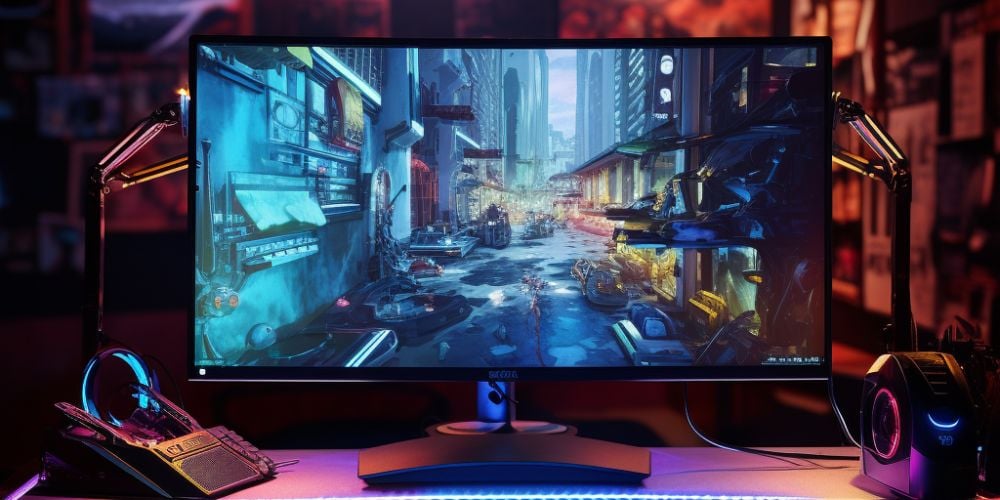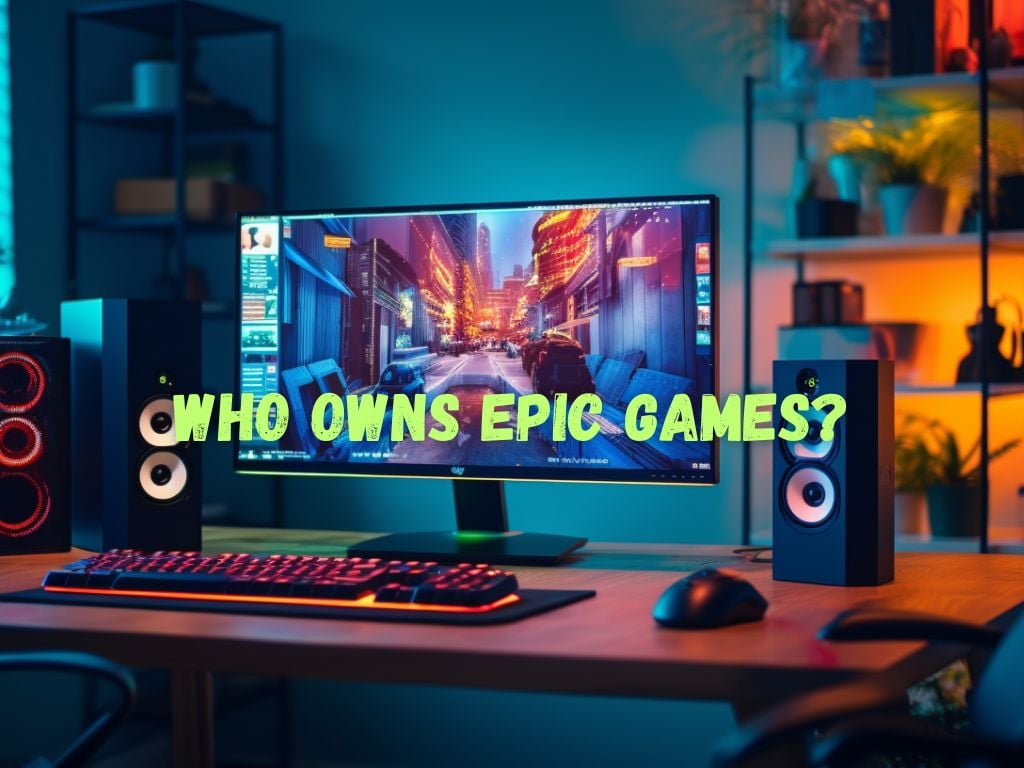The world of gaming has witnessed the rise of several industry giants, but one company that has truly made a mark is Epic Games.
With its revolutionary game engine, Unreal Engine, and the widely popular game Fortnite, Epic Games has become a household name.
But, do you know who owns Epic Games?
In this article, we will take a deep dive into the ownership structure of Epic Games, explore its major shareholders, and introduce the key players behind this gaming powerhouse.
History of Epic Games
Epic Games traces its roots back to 1991 when it was founded by Tim Sweeney. At that time, the company primarily focused on creating games for PC platforms.
In 2006, Epic Games had a significant breakthrough with the release of Gears of War, a critically acclaimed game that propelled the company to new heights.
Epic Games continued to expand its influence through strategic acquisitions, such as Chair Entertainment and People Can Fly, which further solidified its position in the industry.

Who Owns Epic Games? Ownership of Epic Games
Epic Games, the renowned video game development company, has a complex ownership structure. The most significant shareholder is Tencent Holdings, a Chinese conglomerate that acquired a 40% stake in the company in 2012.
Tencent’s investment in Epic Games has not only brought financial stability but also opened up opportunities for growth and expansion, particularly in the Chinese market. Tencent’s extensive network and expertise in the gaming industry have been instrumental in shaping Epic Games’ strategies and decision-making processes.
Tim Sweeney, the founder and CEO of Epic Games, also holds a significant portion of the shares, allowing him to maintain his influence over the company’s direction.
Sweeney’s continued ownership stake demonstrates his commitment to the company and his belief in its long-term vision. With his deep understanding of the gaming industry and technological expertise, Sweeney plays a crucial role in driving innovation and guiding the company’s overall strategy.
Beyond Tencent and Sweeney, other stakeholders are also part of Epic Games’ ownership structure. These stakeholders include investors, employees, and possibly other industry partners or strategic alliances.
While their exact ownership percentages may vary, their collective contribution adds diversity and a range of perspectives to the company’s decision-making processes.
Knowledge of the ownership structure of Epic Games is vital for understanding the dynamics and underlying influences on the company’s operations. It reflects the global reach and ambitions of the company, as well as its commitment to innovation, growth, and building successful partnerships.
Through its multifaceted ownership structure, Epic Games is able to leverage expertise, resources, and market opportunities to maintain its position as a leading player in the highly competitive gaming industry.
Tencent’s Role in Epic Games’ Ownership
Tencent’s acquisition of a 40% stake in Epic Games in 2012 marked a turning point for the company. With this strategic partnership, Tencent brought not only financial support but also their extensive knowledge of the gaming industry and access to the Chinese market.
Tencent’s deep understanding of the Chinese gaming landscape has helped Epic Games navigate the complexities of this unique market. China has a massive gaming community, making it a highly lucrative market.
Tencent’s local expertise and established distribution channels have facilitated Epic Games’ entry and success in the Chinese gaming industry.
Additionally, Tencent’s vast resources have enabled Epic Games to pursue bold endeavors and invest in cutting-edge technologies.
For instance, the development of the Unreal Engine, a powerful and widely-used game engine, has been backed by Tencent’s financial support. This has allowed Epic Games to continually enhance the engine’s capabilities and offer it to developers around the world.
Tencent’s global network and partnerships have supported Epic Games’ growth beyond China. Through collaboration and strategic alliances, Epic Games has been able to expand its reach and gain access to new markets, enhancing its position as a leading player in the global gaming industry.
Overall, Tencent’s involvement with Epic Games’ has been instrumental in driving the company’s growth, unlocking opportunities in both the Chinese and international gaming markets, and fostering innovation within the company.
The partnership has brought together the strengths of both organizations, paving the way for mutual success and continued advancements in the gaming industry.

Key Players at Epic Games
Behind the success of Epic Games are key individuals who steer the company towards continuous innovation and growth. At the helm is Tim Sweeney, the founder and CEO of Epic Games.
Sweeney is widely recognized as a visionary in the gaming industry and is known for his strategic decision-making. His leadership has been instrumental in shaping the direction of Epic Games and pushing the boundaries of gaming technology.
Additionally, Epic Games boasts a talented team of executives who contribute to the company’s success.
Some notable names include Mark Rein, the co-founder and vice president of Epic Games, who played a pivotal role in the development of Unreal Engine, and Kim Libreri, the chief technology officer, who oversees the development of cutting-edge technologies that power Epic Games’ games.
Frequently Asked Questions
Who founded Epic Games?
Tim Sweeney founded Epic Games in 1991. With his passion for gaming and expertise in game development, he built the company from the ground up and turned it into a global force in the gaming industry.
The major shareholder of Epic Games is Tencent Holdings. Tencent acquired a 40% stake in the company in 2012, solidifying its position as the largest shareholder. Tim Sweeney, the founder of Epic Games, also holds a significant portion of the shares.
How much is Epic Games worth?
As of the latest estimates, Epic Games is valued at around $17.3 billion. This valuation is a testament to the company’s success and the impact it has made on the gaming industry.

What are some popular games developed by Epic Games?
Epic Games has developed several popular games that have left a lasting impact on the gaming community. Some notable titles include Gears of War, Fortnite, Infinity Blade, and the Unreal Tournament series.
Conclusion
Understanding the ownership structure and key players behind Epic Games is essential for gaining insight into the driving forces behind one of the most prominent gaming companies in the world.
With Tencent as the majority shareholder and Tim Sweeney’s leadership, Epic Games has experienced remarkable growth and played a significant role in shaping the gaming industry.
As Epic Games continues to innovate and captivate gamers around the globe, its ownership structure will continue to be a topic of interest, reflecting the dynamic nature of the gaming industry.


 Tags:
Tags:










